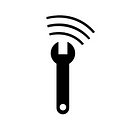Food for Thought? Text ‘YES’ or ‘NO’
Liane Yue (she/her) is a 2021 Summer Fellow with the Mayor’s Office of New Urban Mechanics, working with the Office of Food Access to expand public outreach about safety net programs and resources (such as SNAP, HIP, and Double-Up Bucks) to increase their enrollment and utilization.
Everyone has a food story. Many second-generation Asian immigrants share in the same one, as I do: a love language of cut fruits, the dreaded “lunchbox moment,” the shame of switching into English to be understood at grocery stores and restaurants. Food is fairly integral to my identity — for most of my life, my parents pretty much only expressed affection by calling me for dinner or asking if I wanted to eat. Despite all this, despite thinking about food all throughout each day, working with MONUM and the Mayor’s Office of Food Access (OFA) compelled me to consider a bigger picture outside of my own experience for the first time. Everyone has a food story. We are also all part of a story about food, shaped by the struggle between food insecurity and food sovereignty.
Since having this realization, I’ve been seeing it everywhere. In my family history, the reason why my parents had to study agronomy, seek out a new country and settle in the “breadbasket” Midwest. On my evening walk yesterday, stumbling upon the oldest victory garden in the United States in Fenway. Today, joining a Food Access Network call for Greater Boston and listening to community group leaders share their challenges and best practices in the wake of the COVID-19 pandemic. All the funding and resources that were flowing in last year are beginning to dry up because the city is reopening, said one of the directors, but who knows how long they’ll be dealing with the aftereffects?
The OFA is a tiny team, but they tirelessly endeavor to address these concerns and advocate passionately on behalf of Bostonians for equitable access to fresh, healthy, and culturally-relevant food. This mission is urgent: 1 in 10 Massachusetts households were food insecure prior to the pandemic, and last year this number was estimated to rise to 1 in 7. As a technologist and aspiring civic designer, it seemed like the most useful thing I could do to help was explore ways for the OFA to be in more places at once.
There are a couple ideas I’m exploring this summer to augment staff capacity. The primary one is an informational chatbot that builds on former fellow Catalina’s pilot program, which scheduled emergency food deliveries through text message. The new bot, hosted in a newer, more scalable platform, has a broader scope of connecting residents to any and all resources under the OFA umbrella and freeing up phone lines. There are so many programs (benefits, pickups, and deliveries) with different stakeholders (community groups, state and federal agencies) and levels of involvement (city-owned, city-led, city-catalyzed) that it took me a whole week just to wrap my head around the complex decision tree I needed to translate from a flow chart into triggers, widgets, and code.
Our hope is that the chatbot will bridge digital divides in diverse communities in a few different ways. For one, SMS protocol uses cellular networks that can reach people without Internet access and add resiliency in case of an outage. Its plain text and step-by-step interface may be easier for older adults or busy folks who want to keep transactions to the point. And in contrast to Boston.gov’s one-architecture-fits-all approach, public service chatbots can provide a simpler, more personalized experience. Using this platform, we can target residents who qualified for the Rental Relief Fund and initiate the conversation in their preferred language based on our records.
During this fellowship, I’ve also had the chance to strategize ways that OFA can support corner stores against food deserts, reimagine City Hall’s common spaces, and consider intersections within the “civically active” community at the People’s Collaborative Governance Network. Though these projects make up only a small fraction of the larger food access and public innovation agenda, participating in this process has been so meaningful to me. I’ve witnessed how team members commit their minds, hearts, and bodies to the work at hand, and this has prompted me to look more inwardly and deeply at what I can offer to the collective good. I’ve also come to terms with how much easier it is to define the problem of food insecurity than to put forth solutions that promote sovereignty, and discovered that the MONUM ethic is finding the courage to pursue your creativity anyways. Easier said than done, but I’m taking heart — when we put in the collective work, a future food story of equity, resilience, and inclusion will be within reach.
Liane is a daydreamer who believes in leadership through service, creating opportunities for ourselves and for others, and taking creative chances. She recently left a career in management consulting at Ernst & Young for her current study of Integrated Design Management at MIT propelled by a gut feeling: that when traditional definitions of “human-centered” are expanded to include people at the margins, we all advance. As a Summer Fellow with the Mayor’s Office of New Urban Mechanics, her ultimate goal is to strengthen urban resilience and incubate responsible, radical innovation through design and technology. Liane is also a Hoosier, portrait artist, and aspiring pop star with a weakness for anything pink and heart-shaped.
About the Fellowship:
The New Urban Mechanics Summer Fellowship is designed for entrepreneurial students and professionals interested in working in public service. During this highly selective eight-week program, summer fellows work as a team and on their own projects, generating and implementing creative and thoughtful new prototypes to benefit the City of Boston.
